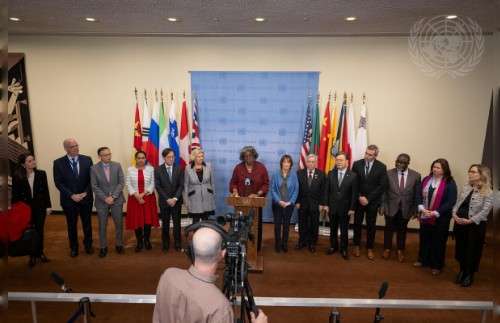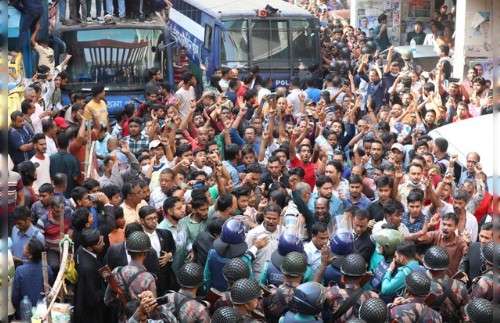Noah Lee and Nisha David
Kuala Lumpur

Malaysia has repatriated nearly 90,000 undocumented migrants since last November and collected U.S. $12.3 million in penalties from them under amnesty programs to legalize or send foreign workers back home, the country’s immigration chief said Monday.
More than 100,000 undocumented migrants who overstayed and lacked the required papers have participated so far in the so-called “recalibration” programs, which the government has extended from the end of June 2021 until the end of the calendar year, officials said.
However, the government also lost 100 million to 130 million ringgit ($23.7 million to 30.8 million) in potential revenue through levies that employers of undocumented workers would have had to pay had the laborers been legal, Immigration Department Director-General Khairul Dzaimee Daud said.
“Statistically, a total of 107,524 undocumented migrants have registered for this program up to Aug. 1, 2021. Of this number, 88,034 of them have already been repatriated,” Daud told reporters during a visit to Kuala Lumpur International Airport (KLIA).
“A total of 52,087,000 ringgit ($12.32 million) in compounds [penalties] have been collected through the program,” he noted.
In July alone, more than 8,000 undocumented were repatriated via the international airport, Khairul said.
BenarNews contacted labor rights group Tenaganita for comment but did not immediately hear back. The Immigration Department’s office also did not respond to a request for more details about the repatriations.
To speed up the repatriations process, more special counters have been opened at KLIA, Daud said, adding that some migrants had earlier complained they had missed their flights home due to delays caused by long queues and limited counters. The immigration department also plans to open more counters at sea ports and airports in other states.
Last November, Malaysia started two recalibration programs by which undocumented migrants could either apply to return to their home countries after paying a fine of 500 ringgit ($118), or stay and work legally in sectors deemed “difficult, dangerous or dirty.”
Under these programs, undocumented migrants can apply to the government through employers if they want to work in the country legally. Only employers from four sectors – manufacturing, construction, agricultural, and plantations – are allowed to offer jobs to these undocumented migrants.
Workers can stay in Malaysia while employers apply for their legalization, according a statement from the Ministry of Home Affairs when it launched the programs in November 2020. The programs also apply to detained foreign workers.
Those undocumented workers deemed not fit or eligible for the legalization program are allowed to leave the country with minimal fines.
Labor shortage
The programs were created amid a manpower shortage caused by the COVID-19 pandemic.
The home ministry, which oversees the police and Immigration Department, had said in November that the plan to legalize workers was “important for the recovery of all sectors of the economy shaken by the negative impacts of COVID-19.”
The World Bank estimated that between 1.23 million and 1.46 million undocumented migrants worked in Malaysia in 2017, while the Reuters news agency said that an additional 2 million people were registered foreign workers.
The country’s palm oil plantations, especially, rely on foreign labor. Documented foreigners make up 80 percent to 85 percent of the plantation workforce, or 265,000 people, according to data from the Malaysian Palm Oil Board.
In June, Indonesian ambassador to Kuala Lumpur Hermono – who goes by a single name – told local media that 51,000 Indonesians had registered under the recalibration program, of whom 44,000 had been repatriated.
According to the embassy’s estimates, about 2.7 million Indonesian workers still work in Malaysia, but only 704,000 have the necessary papers.
‘Making a good life here’
On Monday, Daud also warned all undocumented workers and employers who give them jobs, that those who did not take advantage of the recalibration opportunity by year’s end would be arrested.
“Those arrested, be it workers or employers, will be taken to court,” Daud said.
He also claimed that many of the undocumented migrants who returned to their home countries through the program had overstayed between three and five years on average and had done well for themselves financially.
Daud said many had returned home with electrical appliances, television sets, and two or three big suitcases. He also said that some owned e-wallets – a pre-paid digital account or one connected to an individual’s bank account – and debit cards, which they used to pay their fines.
At the same time, the Malaysian government lost revenue it could have earned if these workers had been legal, Daud said.
Plantation and agriculture sector employers have to pay of 640 ringgit ($151) per legal foreign worker hired, compared with 1,850 ringgit ($437) paid per worker by employers in the service, manufacturing and construction sectors.
“So, if we calculate, we estimated that the levies that the government failed to collect, because the undocumented migrants had worked without valid permits, was between 100 million and 130 million ringgit,” Daud said.
Copyright ©2015-2021, BenarNews. Used with the permission of BenarNews.

















